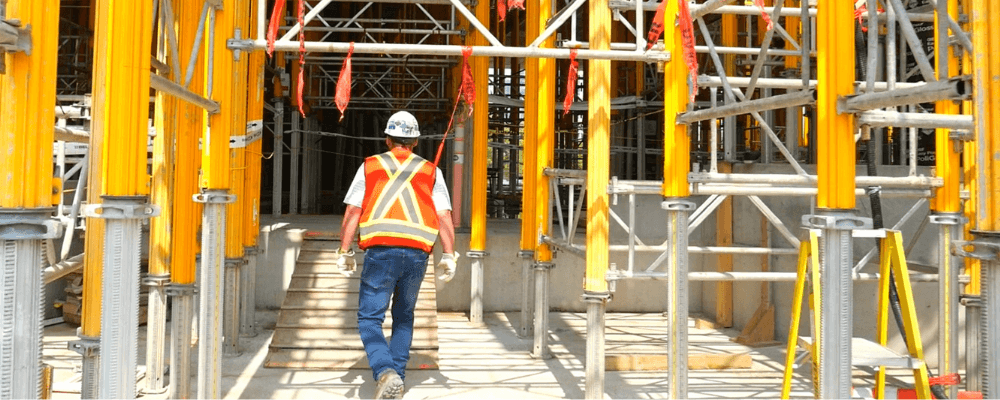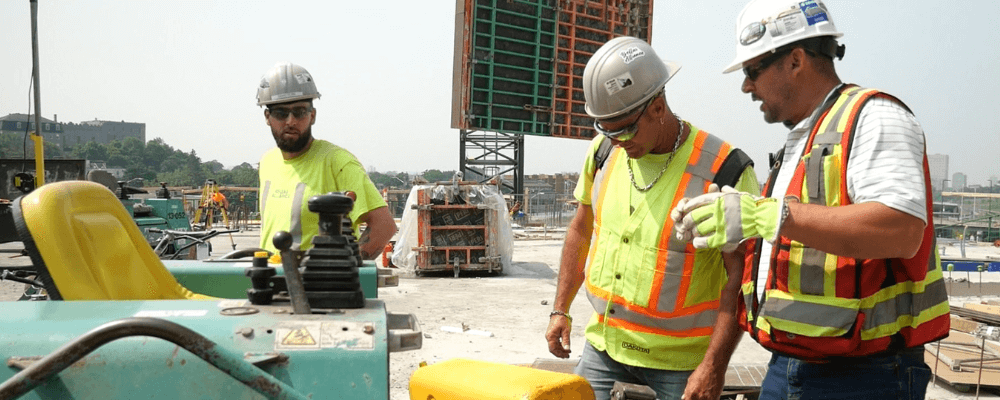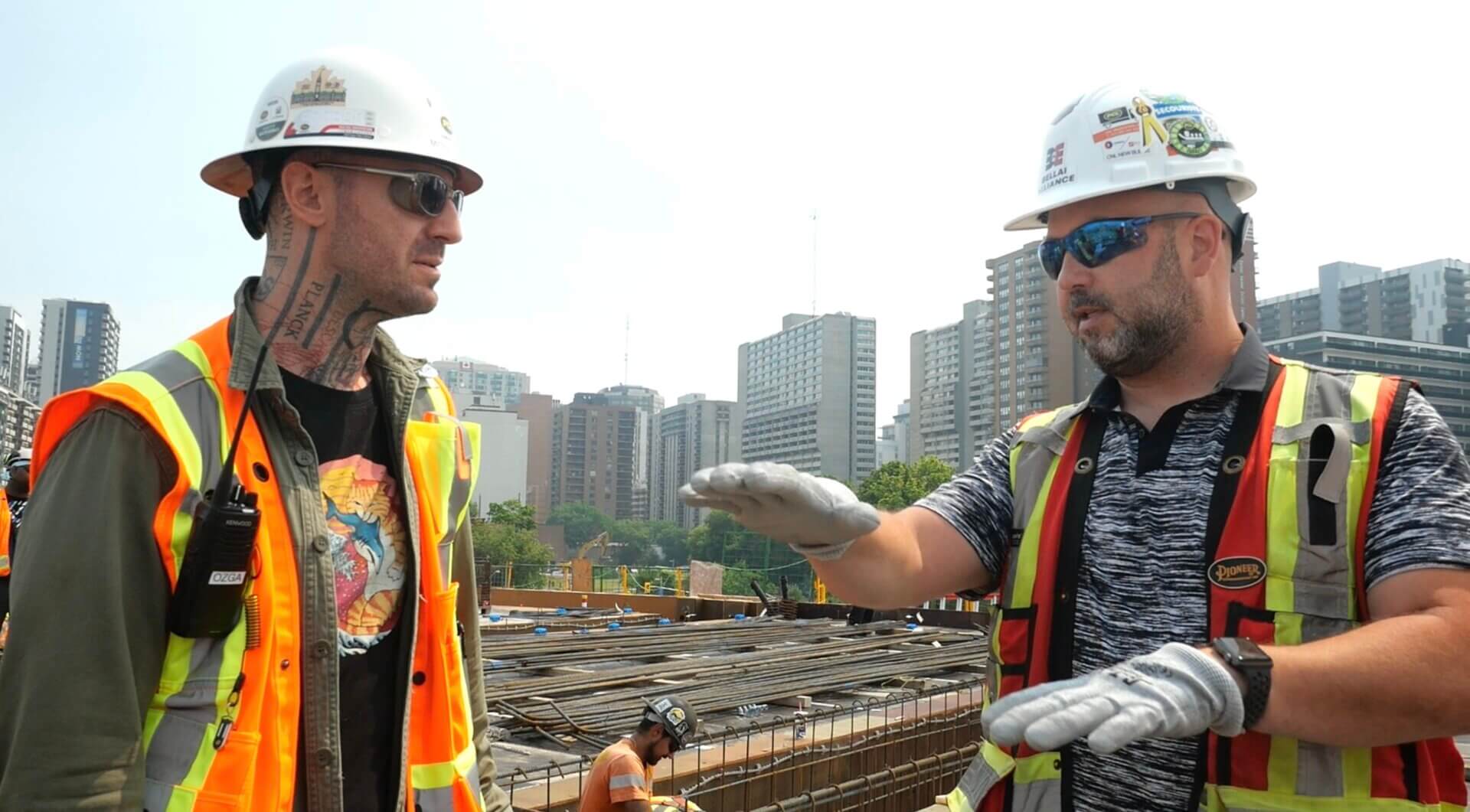From high rises to home renovation, understanding the distinct roles of a general contractor and a subcontractor is crucial. These professionals play different but interrelated roles in bringing a construction project to life. In simple terms, a general contractor oversees the entire project and coordinates all work, while a subcontractor is hired to handle specialized tasks, like electrical work or plumbing, under the general contractor’s direction.
But there’s a lot more to it than that. Let’s dive a bit deeper into the differences, how they interact, and when to hire each for your construction project.
Key Differences Between General Contractors and Subcontractors
While both play essential parts in completing a construction project, their responsibilities and scope of work differ significantly. Below, you will find the key differences between general contractors and subcontractors to help clarify how each contributes to a successful project.
What a General Contractor (GC) does:
- Comprehensive Project Oversight: A general contractor is like the conductor of an orchestra, overseeing the entire construction process. They are responsible for the big picture, ensuring that every aspect of the project aligns with the client’s vision, budget, and timeline.
- Subcontractor Management: One of the primary roles of a general contractor is to hire and manage subcontractors. This involves negotiating contracts, setting schedules, and ensuring that the work meets quality standards.
- Primary Client Communication: As the main point of contact, the general contractor communicates progress, challenges, and changes to the client, providing a single source of information and accountability.
- Legal and Financial Oversight: They handle the legal aspects, such as obtaining permits and ensuring compliance with local building codes. Financially, they manage budgets, invoices, and payments, often handling significant sums of money.
What a Subcontractor does:
- Specialized Expertise: Subcontractors are specialists in their field. Whether it’s plumbing, electrical work, roofing, or flooring, they bring a high level of expertise and precision to their specific task.
- Contractual Relationship: Their contractual relationship is with the general contractor, not the client. This means they are hired to perform specific tasks and are not involved in the broader scope of the project.
- Focused Task Execution: Subcontractors concentrate on their area of expertise, working under the guidance and schedule set by the general contractor. Their focus is on delivering quality work in their specialized area.
- Limited Project Scope: Unlike general contractors, subcontractors do not manage the overall project. Their interaction with the client is usually limited and mediated through the general contractor.

Interaction Between General Contractors and Subcontractors
The interaction between general contractors and subcontractors is a dance of coordination and communication. The general contractor acts as the project manager, orchestrating the timing and integration of each subcontractor’s work. This coordination is critical to prevent overlapping schedules, delays, and conflicts.
These are the three functions of the interaction between the two:
- Communication: Clear and continuous communication is vital. General contractors must effectively convey project timelines, expectations, and changes to subcontractors.
- Quality Control: General contractors oversee the quality of work performed by subcontractors, ensuring it meets the project’s standards and complies with regulations.
- Problem-Solving: When issues arise, the general contractor is responsible for troubleshooting and finding solutions, often in consultation with the relevant subcontractor.
Which One Should You Hire for Your Project?
The decision to hire a general contractor or a subcontractor largely depends on the scale, complexity, and specific requirements of your project. General contractors are ideal for large-scale, multifaceted projects requiring broad management and coordination, while subcontractors are perfect for specialized or smaller tasks within a larger project or for standalone jobs
Five Scenarios to Hire a General Contractor
- Complete Home Renovation: When undertaking a full-scale renovation of your home, which involves multiple aspects like plumbing, electrical work, structural changes, and interior design. A general contractor can manage these diverse tasks cohesively.
- New Home Construction: Building a new home from the ground up requires extensive coordination of various trades, adherence to building codes, and managing a large team. A general contractor has the expertise to oversee such a complex project.
- Major Additions or Extensions: If you’re adding a new room or extending your house, a general contractor can handle the complexities of integrating the new structure with the existing one, ensuring structural integrity and aesthetic consistency.
- Projects Requiring Permits and Inspections: For projects that need various permits and inspections, a general contractor is knowledgeable about the legal requirements and can navigate the bureaucracy efficiently.
- Limited Availability or Expertise: If you lack the time or expertise to manage a construction project, a general contractor can take on the full responsibility, ensuring the project is completed on time and within budget.
Five Scenarios to Hire a Subcontractor
- Specialized Home Improvement Tasks: For specific tasks like installing a new HVAC system, roofing, or custom cabinetry, where specialized skills are required, hiring a subcontractor who is an expert in that particular field is advisable.
- Small-Scale Renovations: If you’re doing a small-scale renovation, such as remodeling a bathroom or kitchen, you might hire a subcontractor directly for these specific tasks, especially if you’re comfortable managing the project.
- Repairs and Maintenance: For repairs like fixing a leaky roof, plumbing issues, or electrical faults, hiring a subcontractor who specializes in these areas ensures that the job is done efficiently and correctly.
- DIY Project Assistance: If you’re a DIY enthusiast undertaking a project but need help with certain aspects beyond your expertise, hiring a subcontractor for that specific part can be a practical solution.
- Cost-Effective Solutions for Simple Projects: For straightforward projects that don’t require extensive coordination or multiple trades, hiring a subcontractor can be more cost-effective and simpler than engaging a general contractor.

5 Reasons to Hire a General Contractor for Your Project
Why do you need a general contractor if subcontractors do all the work? This is a common question among those planning a construction or renovation project. While it’s true that subcontractors are responsible for executing specific tasks, the role of a general contractor is pivotal for these five reasons:
1. Centralized Management and Coordination
- Single Point of Responsibility: A general contractor serves as the single point of responsibility for the entire project. This centralized management means you have one contact for all aspects of the construction, from start to finish.
- Efficient Coordination: They efficiently coordinate the work of various subcontractors. This involves scheduling to ensure that different tasks are completed in the correct order and time frame, preventing costly delays or rework.
2. Expertise in Project Planning and Execution
- Comprehensive Planning: General contractors bring expertise in project planning. They understand how to sequence the work, anticipate potential challenges, and plan accordingly.
- Problem-Solving Skills: They are experienced in handling unforeseen issues that often arise during construction. Whether it’s a delay in materials, a sudden change in plans, or a problem with the workmanship, a general contractor has the skills to find solutions.
3. Quality Control and Compliance
- Ensuring Quality Work: General contractors oversee the quality of work performed by all subcontractors, ensuring that it meets the project’s standards and the client’s expectations.
- Regulatory Compliance: They are knowledgeable about local building codes and regulations. Their role includes ensuring that all work is compliant, which is crucial for the safety and legality of the building.
4. Financial and Legal Management
- Budget Management: General contractors manage the project budget, keeping track of expenses, and making sure that the project stays within financial constraints.
- Legal Aspects: They handle the legal aspects of construction, including contracts with subcontractors, obtaining necessary permits, and managing any legal disputes that may arise.
5. Time and Stress Reduction
- Saving Time: By managing all aspects of the project, general contractors save you time. You don’t need to coordinate with multiple subcontractors or manage day-to-day operations.
- Reducing Stress: They take on the stress of project management. This includes dealing with any issues that come up, ensuring that you can focus on your daily life without the added burden of managing a construction project.
So, while subcontractors are essential for their specialized skills in specific areas of the construction process, a general contractor brings it all together. They provide the oversight, expertise, and management necessary to ensure that the project is completed efficiently, to a high standard, and in compliance with all regulations. Hiring a general contractor can be a wise investment, saving you time, stress, and potentially money in the long run.

